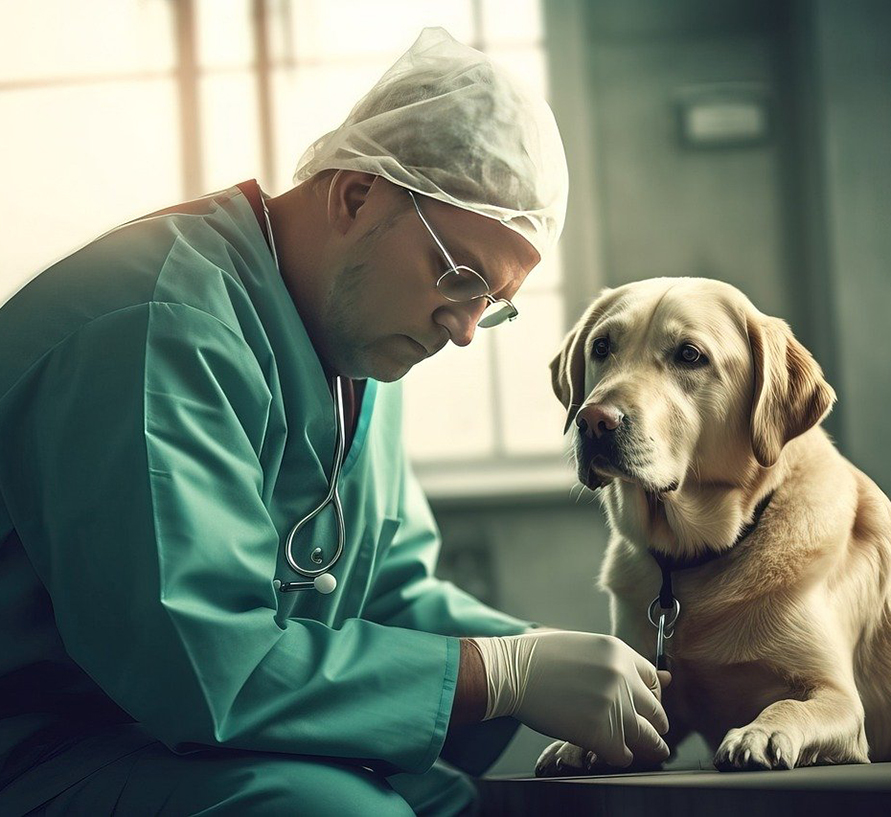If you have questions about vaccinating dogs and cats: What do you need to know?
Vaccinating our pets, especially dogs and cats, is a crucial part of veterinary care that ensures their health and well-being. Below, we present what you need to know about the importance of vaccinating your pets, legal obligations, and some useful tips.
Why is it important to vaccinate our pets?
1. Disease prevention: Vaccines protect dogs and cats from potentially life-threatening diseases such as rabies, parvovirus, distemper, feline leukemia, and others.
2. Community protection: By vaccinating our pets, we not only protect them, but we also help prevent the spread of diseases within the animal community and to humans.
3. Overall well-being: Vaccinated pets tend to have longer, healthier lives, as they are less exposed to infectious diseases.

Legal obligations
Legal obligations regarding pet vaccination vary by country and sometimes within different regions within the same country. In Spain, there are several legal obligations regarding pet vaccination and identification:
Rabies: Rabies vaccination is mandatory for dogs in most autonomous communities in Spain, although specific regulations may vary. Some regions also require vaccination for cats and ferrets.
Microchip: In Spain, microchip implantation is mandatory for all dogs, and in many autonomous communities it is also mandatory for cats and ferrets. The microchip must be implanted by a veterinarian and registered in an official database.
Registration and control: In addition to the microchip, it is mandatory to register pets with a municipal or regional registry. This registration makes it easier to identify animals and locate their owners in case of loss.
Certification: Veterinarians provide vaccination and microchip certificates, which may be required for traveling with your pets, accessing specific parks or kennels, and in the case of sale or adoption.
Advantages of the microchip
Permanent Identification: Unlike collars with ID tags, the microchip cannot be lost or removed.
Fast reunification: If your pet gets lost, the microchip makes it easy to quickly identify and return home.
Medical information: Some microchips may contain information about the pet's medical history, which is useful in emergencies.

Useful tips for vaccination
1. Consult your veterinarian: It's always best to follow a veterinarian's recommendations, as they can advise you on the appropriate vaccination schedule for your pet based on their age, health status, and lifestyle.
2. Keep a record: Keep a detailed record of your pet's vaccinations, including the dates and types . This is helpful for remembering when a booster is needed.
3. Additional vaccinations: In addition to the mandatory vaccinations, there are others that may be recommended depending on the area where you live or the activities your pet does, such as the leptospirosis or canine influenza vaccine.
4. Monitor health: After vaccination, observe your pet for any adverse reactions. Side effects are usually mild and temporary, but if you notice anything unusual, contact your veterinarian immediately.
5. Continuing education: Stay informed about new recommendations and advances in vaccines, as veterinary medicine is constantly evolving.
Vaccinating your pets is a responsibility that not only protects their health but also contributes to the well-being of the community at large. Complying with legal obligations and following vaccination guidelines ensures that your dog or cat is protected against various diseases. Don't forget that prevention is the best medicine , and keeping your pet's vaccination schedule up-to-date is an effective way to ensure a long and healthy life.
Protect your furry friend with proper vaccinations and enjoy his company for many years to come!
Share this content















